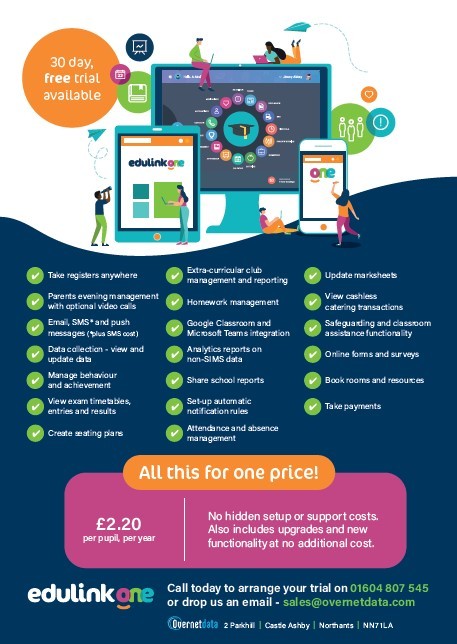
20/01/2023
Can your school afford the costs of poor parental engagement?
Parental engagement has a significant impact on children’s learning and outcomes. Is your school doing a good job? Can you afford not to?
The DfE’s “Review of best practice in parental engagement” (Goodall, Vorhaus et al. 2001) was clear from the outset that “Parental engagement has a large and positive effect on children’s learning.”
A large body of more recent, authoritative research is similarly unequivocal about how good parental engagement practice will improve outcomes.
But there’s an important caveat. You will only be successful in stimulating more parents to engage if you firstly manage to get them involved. And the only reliable way to achieve that is by having a robust parental engagement strategy, executed with timely precision.
But with so much vying for the precious time of all education practitioners, why should improving parental engagement, in particular, be one of your top priorities?
Let’s consider, for a moment, the costs of poor parental engagement.
It’s not just about the money
The most obvious cost is financial. It’s what all the education technology companies trying to sell you the latest gizmo claim to be able to do – save your school cash.
It’s true, if deployed effectively, the right technology tools can reduce your expenditure. There are hundreds of applications out there that can help you use less paper, waste less photocopier energy or send fewer costly text messages (Edulink One, for one).
But what are the other, less frequently mentioned, costs of failing to improve your approach to achieving better parental engagement?
First of all, imagine the following scenarios (one or two might feel rather close to home):
- Your admin team gets ‘snowed under’ with the manual data entry of pupil and parent records and data quality is lacking in integrity;
- It takes staff days (rather than minutes) to organise a parents evening and the process (and resulting event) can be stressful;
- Teachers have multiple log-ins to different systems and spend too much time switching between applications (homework, registers, marksheets, seating plans etc.) to enable them to do their jobs effectively whilst under pressure;
- Your network manager spends a considerable amount of time resetting passwords for all the different parent and teacher apps;
- The senior leadership team (SSLT) is lacking a single view of all relevant student information, making it challenging to make timely interventions.
Consider the opportunity cost of ‘shifting effort’
If you’re suffering from any of above issues, you are missing real opportunities to reduce workload – and we all know how the workload crisis is blighting the education industry and having a seriously detrimental effect on morale and mental health.
You’ll also be missing a significant opportunity cost that could have come from enabling staff to ‘shift effort’. What alternative activity could staff have been investing their time in that could have made more of a difference to outcomes? Like responding better to a parent concern, seeing more parents attend school for a parent-teacher consultation, enabling teachers to spend more time with their families, or being empowered to make a more timely student intervention?
Poor perception and reputational damage
Effective communication is one of the cornerstones of a good parental engagement strategy. It’s how you execute on your strategy by taking it to your stakeholders. And here we’re not just talking about what you communicate – and when – but how you communicate.
At best, poor communication is a frustration for already engaged parents that can hinder positive perceptions and the continued improvement of your engagement efforts.
Inferior communications will make it more difficult for you to get less engaged parents into school in a meaningful way. In particular, disadvantaged families (such as lower socio-economic groups, parents of SEND children, and EAL families) are likely to be further marginalised. They may even be less likely to buy into your ethos and encourage their children to live your school’s values.
At worst, poor communication can cause serious reputational damage that can have a profound effect and take a significant amount of time to recover from.
There are many school and family factors to take into consideration when formulating or reviewing your parental engagement strategy: not least, how effectively you are taking it to parents and the wider community. The costs of not getting this right can be far reaching – and are not just financial.
Free Ebook: “Improving Communication with Hard-to-Reach Parents”
If you’re interested in reading more about the subject of parental involvement and engagement, we’ve recently published an e-book entitled: “Improving Communication with Hard-to-Reach Parents – A Guide for Improved School-Family Partnership”. You can get your copy by filling in this form below and we’ll send it to you by email/download.







